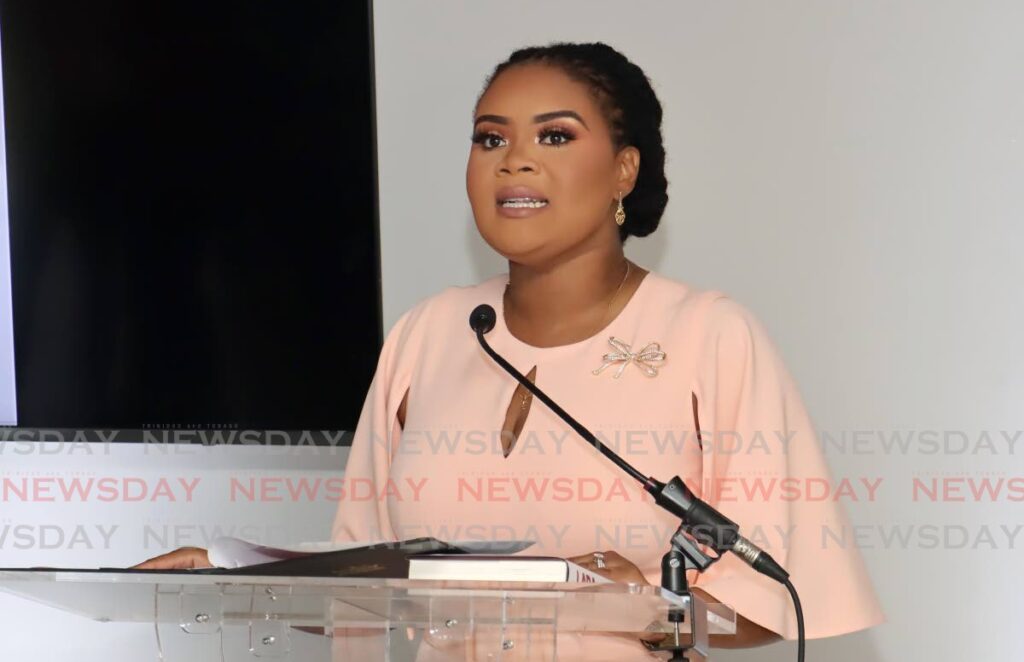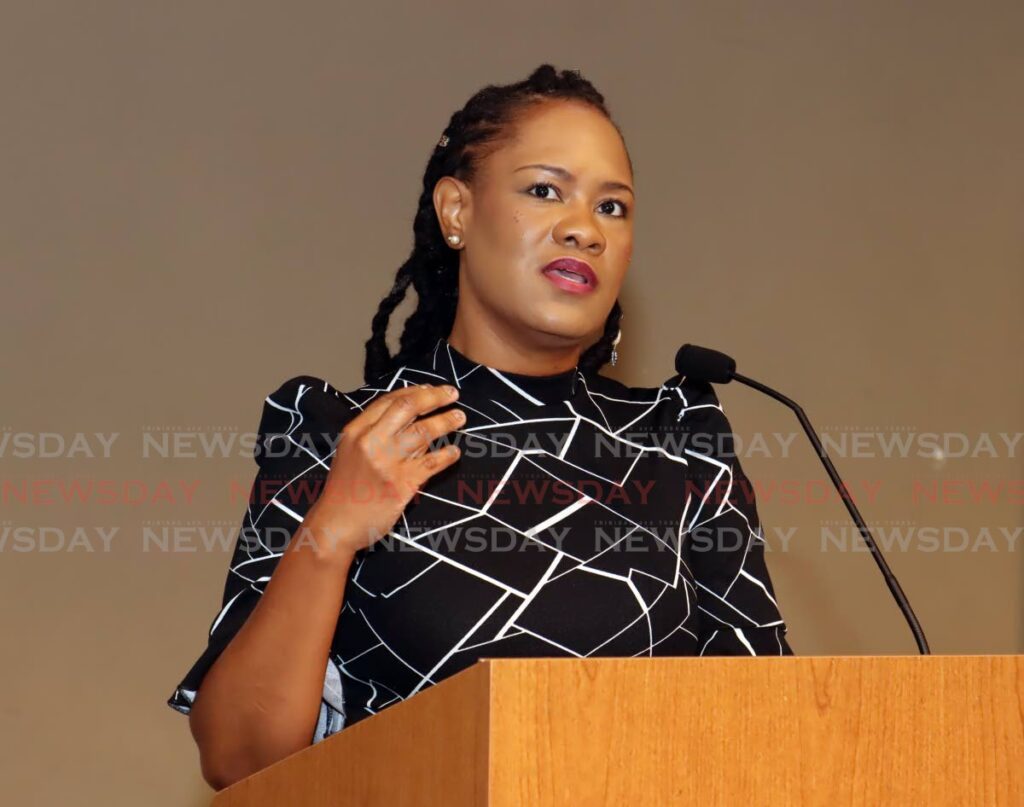PNM Tobago leaders urge support for autonomy bills: ‘Step forward for Tobago’s future’

THE leaders of the People’s National Movement (PNM) in Tobago say just because Tobagonians are not getting everything they want immediately out of the Tobago autonomy bills does not mean they should reject them, because they were better than anything offered previously.
Speaking at the PNM’s first town-hall meeting on Tobago’s autonomy at the Belle Garden Multi-Purpose Facility on November 16, Tobago West MP Shamfa Cudjoe-Lewis compared it to a marriage.
“It’s a marriage between Trinidad and Tobago. When you go into a marriage with somebody, you don’t get all you want. There has to be some compromise, because you’re taking some from one to give more to the other.
“It’s about c-ooperation. It’s about conversation. It’s about compromise. So to say, ‘If we don’t get exactly what we want right now in one fell swoop, we don’t want nothing, we don’t want anything at all,’ I think it will be foolhardy, especially considering the work that all of us have put into this journey.”
So she encouraged Tobagonians to "give it their best shot," because the laws could be improved in the future.
Also, the current parliamentary term was the last before the general election and they did not know who the next set of parliamentarians would be or what their positions would be.
PNM Tobago Council political leader Ancil Dennis highlighted the benefits of the bills, specifically more money for Tobago in the national budget and the power to make its own laws.
He said he sat in the Tobago House of Assembly (THA) as an assemblyman for nine years and the legislature met once a month. But there, the most that could be done was debate and pass motions to ask the House to execute certain responsibilities.
He said it had very little impact on the people of Tobago, because while policies could instruct, there were no penalties for breaching them.
He said the THA had drafted bills, debated and passed them to take them to the Parliament, but he had no idea what had happened to them.
With the Tobago autonomy bills, Tobago could skip the Cabinet and Parliament and form legislation with the President.
“From 1980 to now, Tobago, your assemblymen that you elect, and that the taxpayers pay to represent us and treat with our issues here, from then to now, your assembly has never made one single law.
“The Parliament making a law how often? Every week? But the Parliament has their agenda. The Parliament’s agenda is the national agenda…And what are the issues engaging the attention of the Parliament? Crime, etc.
"So who is taking care of Tobago’s issues? We must be in a position to take care of our own issues.”
When it came to funds, Dennis said the minimum allocation to the Tobago island government would increase from 4.03 to 6.8 per cent of the national budget.
Using the last budget in which the THA received $2.59 billion as an example, he calculated an additional $1.5 billion.
He said over the last ten years or so, the development programme which was critical to the economy of Tobago, got between $200 and $400 million.
“It’s through that development spend that we are able to engage dozens of contractors and business persons who will do work for the THA and in doing that work, they will create job opportunities for a number of Tobagonians.”
He said even as more money would have to be spent creating new divisions like Legal Affairs and Public Administration, Tobago would get three to four years' worth of development funds in one year.
The PNM Tobago leaders therefore encouraged Tobagonians to stand up and speak out to convince people internal self-governance and more autonomy were what they wanted, so the bills would be supported in Parliament.
Cudjoe-Lewis said the only way to make it happen was by changing the legislation in the Parliament. And the legislation required a three-quarter majority, or 31 votes, in the Lower House, where the PNM, only had 22 seats. It also needed six more votes than the PNM had in the Senate.
“That is why we had taken the position many years ago, to operate from a position of Tobago first – we as Tobagonians coming to one position, one accord, and speaking to Trinidad, speaking to central government, convincing our colleagues, our peers, our family members, our friends across the waters that this is the Tobago position, and therefore we should support it.”
She said the bills were the result of over 42 consultations throughout both islands from 2007-2016. And in 2016 the THA, under chief secretary Orville London, passed a motion on Tobago self-determination and sent it to Trinidad.
The bills were now at the stage where the Parliament adopted the report of the joint select committee, in which advice from local and international experts in various legal fields was given and the legislation adjusted.
She said she heard the PNM opposition in the THA saying if they won the two Tobago seats, they would give Tobago internal self-governance. But, she pointed out, two votes could not pass the bills.
She stressed that people could support the bills and still vote for their preferred parties, as the bills were not about politics but the dreams and aspirations of Tobagonians.

Tobago East MP Ayanna Webster-Roy added that she believed those in leadership of Tobago turned the issue of more autonomy into a political tool and an opportunity for their own personal gain, selling Tobagonians' right to self-determination.
She encouraged people not to stand for that, because the children were the ones who would be at a disadvantage.
In addition, she said if something good happened in Tobago, the ripple effects would reach Trinidad and vice versa. And TT, collectively, had been trying to establish better policies and programmes for the nation’s children so there would be a better society for all.
“The average Trinidadian, when polled, indicated they want Tobagonians to have the opportunity to chart their own destiny, to create laws to impact the people of Tobago, because the average Trinidadian recognises a stronger, better Tobago equals a stronger, better TT.”
Webster-Roy said this was not a Tobago fight but a national fight, and challenged Tobagonians and their friends in Trinidad to use their voices to send a message to Tobago’s leaders to join the PNM in support of the bill.
She also encouraged them to write to members of the Opposition to let them know the bills were what the people of Tobago wanted.

Comments
"PNM Tobago leaders urge support for autonomy bills: ‘Step forward for Tobago’s future’"